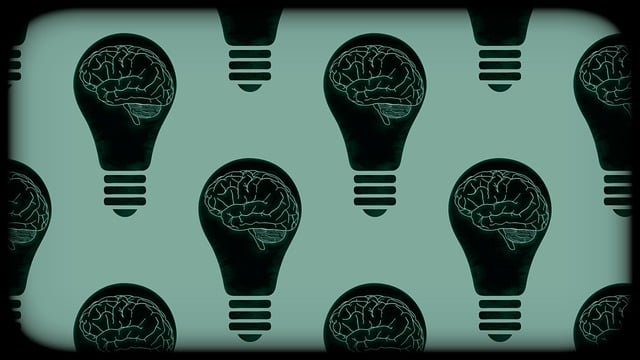Mental health counseling offers safe, supportive environments with evidence-based techniques for managing stress, anxiety, depression, trauma, and relationship challenges. Qualified therapists with advanced degrees and certifications provide personalized strategies to improve well-being through cognitive-behavioral therapy (CBT), mindfulness, and other approaches. Building strong therapeutic relationships encourages goal setting and progress assessment for effective coping and mental health growth. Local support networks and community resources complement counseling, fostering resilience and proactive well-being.
Depression is a serious yet treatable condition, and seeking professional help through mental health counseling can be transformative. This comprehensive guide explores your journey towards healing. We’ll walk you through understanding various mental health counseling services, locating qualified depression therapists near you, and delving into different therapeutic approaches. By uncovering the benefits of professional therapy sessions and highlighting local support networks, this article aims to empower individuals seeking effective treatments for depression.
Understanding Mental Health Counseling Services

Mental health counseling services play a pivotal role in addressing and managing various emotional, behavioral, and psychological issues. These services offer a safe and supportive environment for individuals to explore their thoughts, feelings, and experiences. Qualified therapists employ evidence-based techniques tailored to each client’s unique needs, such as cognitive-behavioral therapy (CBT), mindfulness-based interventions, or psychodynamic approaches.
Counseling provides individuals with valuable tools to cope with stress, anxiety, depression, trauma, and relationship challenges. Through regular sessions, clients can gain insights into their behaviors, develop healthier coping mechanisms, and enhance overall well-being. The process is confidential, allowing clients to feel comfortable discussing sensitive topics without fear of judgment.
Locating Depression Therapists Near You

Dealing with depression can feel overwhelming, but finding the right support is a crucial step towards recovery. One effective approach is to seek out local depression therapists who specialize in mental health counseling. Start by using online resources and search engines to locate therapists in your area. Many platforms now offer detailed profiles of professionals, allowing you to filter by specialization, insurance, and availability. This initial search makes it easier to identify suitable candidates.
Once you have a list, consider factors like the therapist’s approach to treatment, their qualifications, and whether their practice is convenient for you. It’s important to find someone with whom you feel comfortable discussing personal matters. Some therapists offer in-person sessions, while others provide online counseling, catering to different preferences and needs. With a bit of research, you can discover mental health counseling services tailored to your location, making it easier to take that first step towards managing your depression effectively.
Qualifications and Types of Counselors

When seeking a therapist for mental health counseling, understanding their qualifications is paramount. Look for professionals who hold at least a master’s degree in clinical mental health counseling or a related field. This ensures they’ve undergone rigorous training and education to provide effective therapy. Certifications from recognized organizations further validate their expertise in areas like depression treatment, ensuring you receive high-quality care.
There are various types of counselors specializing in mental health, each with unique approaches. Some focus on cognitive behavioral therapy (CBT), which targets specific thoughts and behaviors to manage symptoms. Others might employ mindfulness techniques or interpersonal therapy, tailored to address relationship issues and personal experiences. Knowing the counselor’s background and preferred methods can help you choose the best fit for your needs in navigating depression and enhancing overall mental well-being.
Benefits of Professional Therapy Sessions

Professional therapy sessions offer a safe and supportive space for individuals struggling with their mental health. Through qualified therapists, people can gain valuable insights into their thoughts, emotions, and behaviors, fostering self-awareness and personal growth. Mental health counseling provides effective tools to manage and overcome various challenges, from anxiety and depression to relationship issues and trauma.
These sessions enable individuals to explore complex feelings, work through past traumas, and develop coping mechanisms tailored to their unique needs. The benefits extend beyond the therapy room, positively impacting daily life, relationships, and overall well-being. Many find that professional guidance empowers them to navigate life’s difficulties with increased resilience and a renewed sense of purpose.
Building a Therapeutic Relationship

Building a strong therapeutic relationship is a cornerstone of effective mental health counseling. This process involves creating a safe, non-judgmental space where clients feel comfortable opening up about their thoughts and emotions. Therapists achieve this by actively listening, validating feelings, and fostering an atmosphere of trust and empathy. A solid connection allows individuals to explore their challenges more deeply, enabling therapists to provide tailored strategies for managing symptoms and improving overall well-being.
During sessions, therapists should encourage clients to set goals, assess progress, and collaboratively decide on treatment plans. This collaborative approach empowers patients, encouraging active participation in their mental health journey. By building a supportive relationship, therapists can help individuals develop resilience, gain new perspectives, and cultivate healthier coping mechanisms, ultimately leading to lasting positive changes in their lives.
Effective Treatments for Depression

Depression is a complex condition, but there are effective treatments available that can provide significant relief. One of the most successful approaches is mental health counseling, which offers individuals a safe space to explore their feelings and thoughts. Therapists use various evidence-based techniques such as cognitive behavioral therapy (CBT), dialectical behavior therapy (DBT), and interpersonal therapy (IPT) to help patients understand and manage their symptoms.
CBT, for instance, focuses on identifying and changing negative thought patterns while DBT combines CBT with mindfulness practices to improve emotional regulation. IPT, on the other hand, addresses relationship issues and social challenges often linked to depression. These therapeutic methods empower individuals with coping strategies tailored to their unique needs, fostering a path towards improved mental well-being.
Accessing Local Support Networks

Accessing local support networks is an integral part of navigating one’s journey with mental health challenges. In the context of nearby depression therapists, it’s just as important to explore community resources and peer support groups. Many individuals find solace in knowing that they’re not alone; local support groups offer a safe space to share experiences, gain insights, and build connections with others facing similar struggles. These networks can complement therapy sessions by providing ongoing encouragement and practical strategies for coping with depression.
Local communities often have mental health counseling services available through community centers, non-profit organizations, or religious institutions. Websites, local newspapers, and online directories are excellent resources to discover these nearby therapists and support groups. Utilizing these accessible tools empowers individuals to take proactive steps towards their well-being, fostering a sense of resilience and hope in their quest for better mental health.
